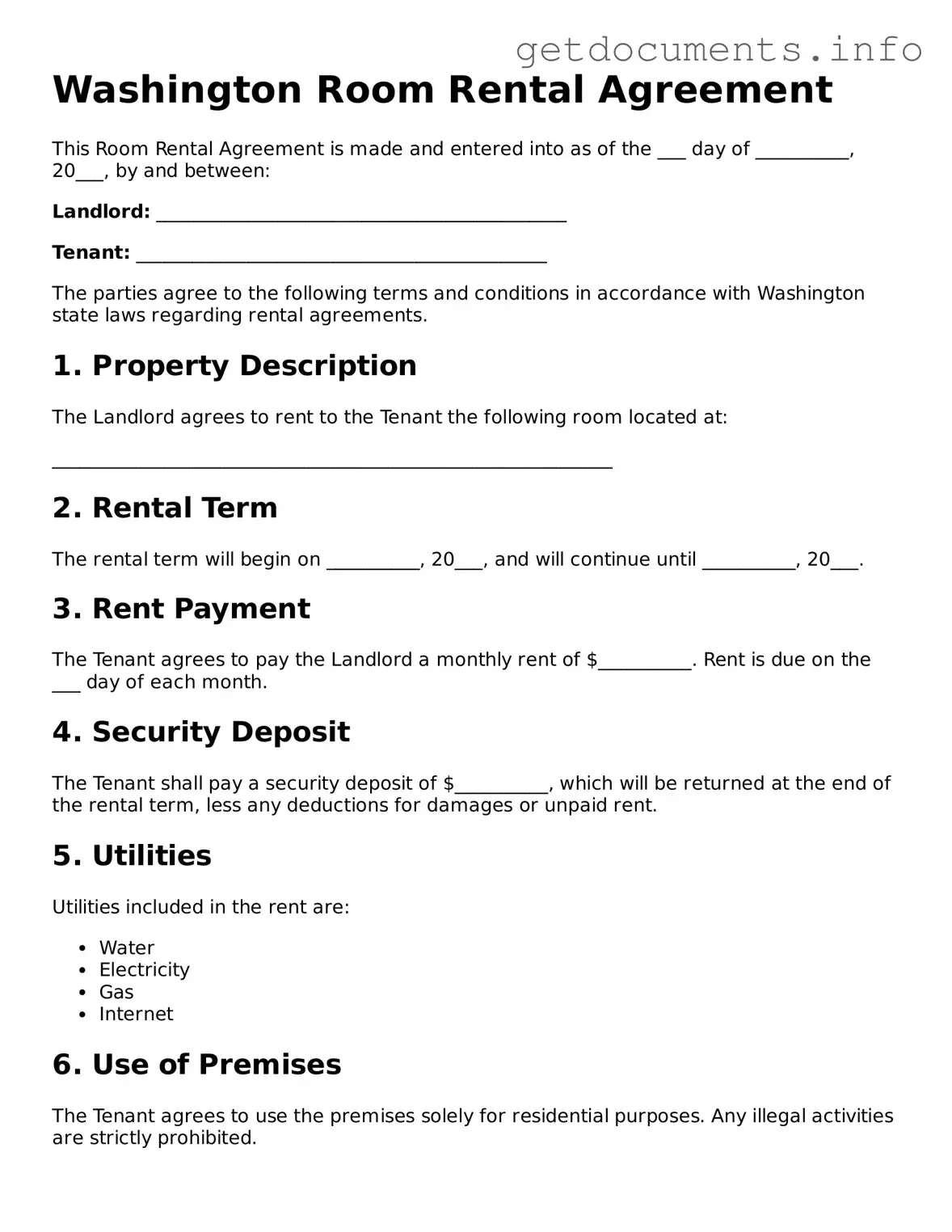Free Room Rental Agreement Template for Washington
The Washington Room Rental Agreement form is a legal document that outlines the terms and conditions for renting a room in Washington state. This agreement protects both the landlord and tenant by clearly stating responsibilities, payment details, and other essential information. To ensure a smooth rental experience, it is important to fill out the form accurately; click the button below to get started.
Access Room Rental Agreement Editor

Free Room Rental Agreement Template for Washington
Access Room Rental Agreement Editor
Got places to be? Complete the form fast
Fill out Room Rental Agreement online and avoid printing or scanning.
Access Room Rental Agreement Editor
or
⇩ PDF File
